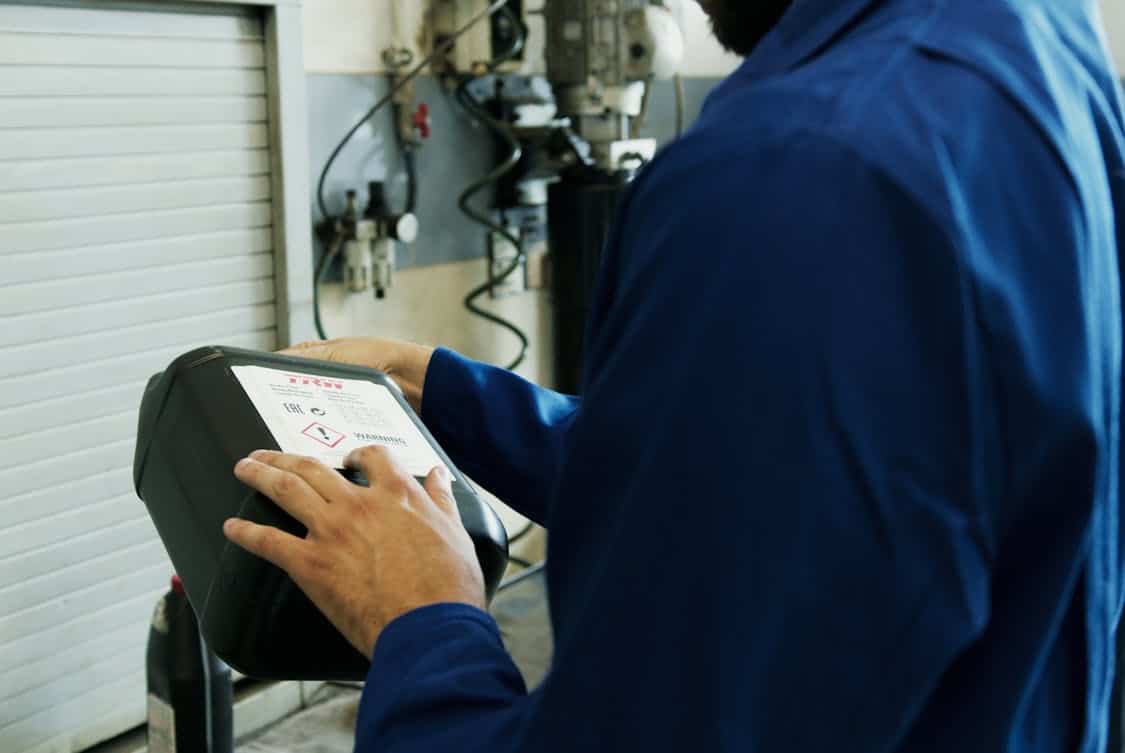Epoxy coating is widely recognized in the construction and DIY communities for its durability and protective qualities. It is a type of polymer material that, when cured, forms a hard, glossy surface.
This coating is often applied to garage floors due to its resistance to wear and tear. But does it stand up to the various chemicals found in a typical garage? That’s the question we’re exploring.
Understanding Garage Chemicals
Garages often serve as storage spaces for a plethora of chemicals. From motor oils to cleaning agents, the variety of substances can be staggering. Notable offenders include gasoline, brake fluid, and antifreeze.
Each of these poses a unique challenge to any surface that comes into contact with them. So, how does epoxy fare against this cocktail of chemicals?
Chemical Resistance of Epoxy
Epoxy coatings are known for their resistance to a range of chemicals. This makes them a popular choice for garages and industrial floors alike. The curing process of epoxy creates a dense, impermeable layer, which helps in preventing chemical penetration.
However, not all epoxy coatings are created equal. Different formulations may offer varying levels of protection. To avoid damage and extend the life of your floors, it’s a smart move to protect your garage with high‑gloss epoxy designed to handle tough chemical exposure.
Common Garage Chemicals and Their Effects

Motor Oil: Often used for vehicle maintenance, motor oil can spill onto garage floors. Epoxy generally resists oil stains well, provided the coating is of high quality and properly applied. However, prolonged exposure can still lead to degradation.
Gasoline: A common substance in many garages, gasoline can be a bit tricky. While many epoxy coatings can withstand gasoline spills, immediate cleanup is recommended to avoid potential damage.
Antifreeze: This substance can leak from vehicles, and its sweet smell can attract pets. Epoxy coatings can usually handle antifreeze spills, but again, quick action is key to maintaining the integrity of the surface.
Factors Impacting Epoxy Performance
The effectiveness of an epoxy coating in a garage setting depends on several factors.
Quality of the Epoxy: Not all epoxy coatings are formulated the same. Industrial-grade epoxies generally offer superior chemical resistance compared to standard consumer-grade products.
Application Process: Improper application can compromise the protective qualities of epoxy. Surface preparation is crucial; dirt, oil, or moisture can lead to adhesion issues.
Curing Time: Epoxy requires adequate time to cure fully. Rushing this process can result in a weaker surface that may not resist chemicals effectively.
Pros and Cons of Epoxy in Garage Settings
Pros
Durability: Epoxy coatings provide a hard, durable surface that can withstand heavy foot and vehicle traffic.
Easy to Clean: The smooth surface allows for easy cleanup of spills, which is essential in a garage setting.
Aesthetic Appeal: With various colors and finishes available, epoxy can enhance the visual appeal of an often-neglected space.
Cons
Sensitivity to UV Light: Most epoxy coatings can yellow or degrade when exposed to direct sunlight over time. This can be a consideration for garages with windows or doors that let in sunlight.
Initial Cost: While the long-term benefits may outweigh the initial investment, high-quality epoxy can be pricier than other flooring options.
Alternatives to Epoxy
While epoxy has its strengths, other options could also be viable, depending on specific needs.
Polyurethane: This is another resin-based option that offers excellent chemical resistance. It can also hold up better under UV light, making it a suitable alternative for garages with significant sunlight exposure.
Vinyl Flooring: For those seeking a softer surface, vinyl flooring can be a good choice. However, it may not hold up as well against heavy machinery or sharp objects.
Concrete Staining: A less durable but more aesthetically versatile option. Concrete stains can enhance the look of a garage but require more maintenance when it comes to chemical spills.
Maintenance of Epoxy Coatings
To maximize the lifespan of an epoxy-coated garage floor, regular maintenance is key.
Routine Cleaning: Sweep and mop the floor regularly to remove debris. Use a pH-neutral cleaner for deeper cleaning.
Immediate Spill Cleanup: Act quickly if a chemical spill occurs. This minimizes the chance of staining and damage.
Periodic Inspections: Check for signs of wear, such as chips or cracks, which may indicate the need for touch-ups or reapplication.
Application of Epoxy Coating
Applying epoxy is not a one-size-fits-all solution. Preparing the garage floor is essential for achieving the best results.
Surface Preparation: This often involves grinding or etching the concrete to create a rough surface for better adhesion.
Mixing and Application: Follow the manufacturer’s instructions for mixing the epoxy components. Apply the mixture evenly, using a roller or squeegee for best results.
Curing: Allow adequate time for the epoxy to cure properly. The specific time will depend on the product, temperature, and humidity levels.
Epoxy coatings can effectively handle many chemicals commonly found in garages. Factors like the quality of the epoxy, proper application, and maintenance all play significant roles in its performance.
Understanding the limitations and strengths of epoxy will help owners make informed decisions about their garage flooring needs.









